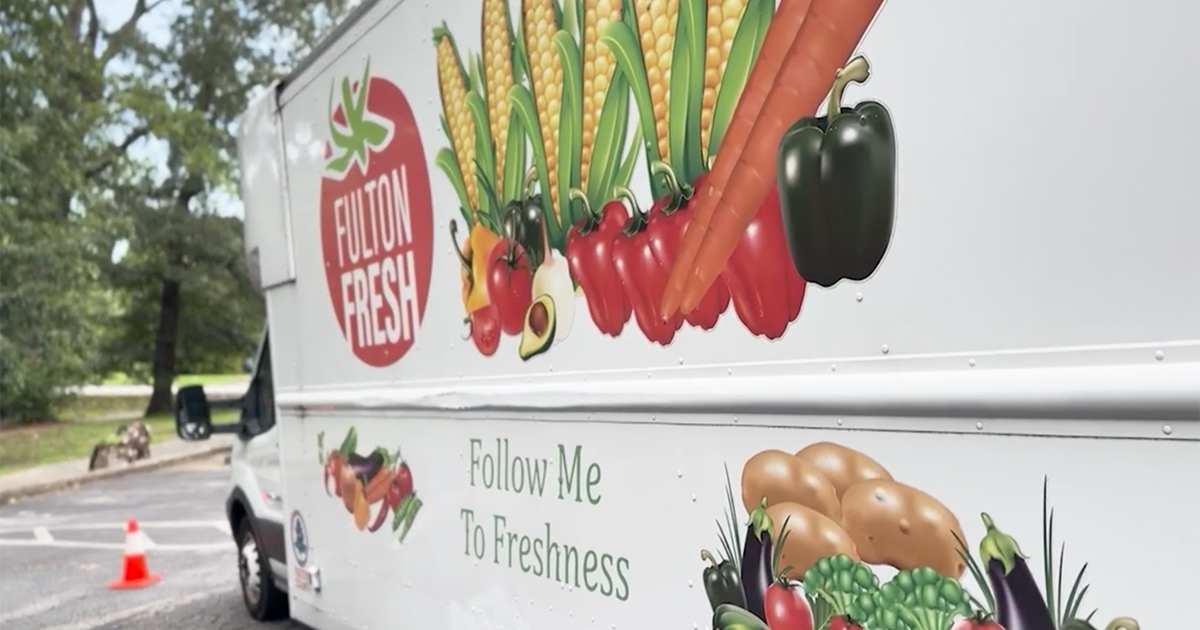Atlanta, GA |
Here in Atlanta, these boxes of fresh produce are being packed into bags, where they’ll be loaded onto a truck and taken to and handed out in neighborhoods classified as what’s called a “food desert” – an area with a population of people that are generally low income and have trouble finding or affording fresh, nutritious, and wholesome foods.
“When we think about food deserts, we always think about like rural places, right? You think metro Atlanta, this bustling city, how could anyone be in a food desert? Well, we have a different problem. We have food swamps where neighborhoods are inundated with high calorie, nutritionally low foods. Then their access to fresh fruits and vegetables isn’t that great. Like their grocery store might have some produce, but is it high quality? And then is it cheap or is it expensive? It normally is expensive and so people are going to spend their food dollars on stuff that is shelf stable that they know is actually going to be good,” says Cecilia Tran, Family & Consumer Sciences Agent for Fulton County Extension.
That’s where Fulton Fresh’s comes in, as it’s a program that’s designed to allow those in designated areas the opportunity to not only receive fresh produce, but get to learn how to store it, prepare it, and cook it into a nutritious and wholesome meal.
[Shirley Dodd/Coordinator, Fulton Fresh Mobile Market]
“What the program does, it’s a nutritional program, and we go in what’s designated as food deserts in Fulton County. We do a nutritional class where the ladies teach various health topics. They do a food demonstration. They let the participants sample the demonstration, and then we give them a bag of produce. What we try to do is, whatever the demonstration is, we try to put that in the bag so they could go home and make that particular dish,” says Shirley Dodd, Fulton Fresh Mobile Market Coordinator.
According to Dodd, they often have nearly one hundred people at each stop; proving just how beneficial and much needed the program is in the areas that they visit.
“They love it. Yesterday, we went out and in both sessions we had close to 100 people. We have people that follow the truck and come to location because we do it just the ten weeks in the summer; two five week sessions. If you come to the market, then you basically have your groceries because this bag of produce; you can eat out for a couple of days depending on how many is in the family,” says Dodd.
However, Tran says what’s most valuable isn’t just the free bag of produce, as she believes the skills and knowledge they’re gaining will set them up for future success.
“The skills that they learn here and a little bit of that education really helps them through out to the next year. When they come back, they’re like, ‘I did this and this and this, and I see my numbers come down.’ Like last year, I told somebody that if you don’t like eating breakfast foods for breakfast, don’t eat that. And she came back the next year and she was like, ‘you changed my life.’ And I was like, ‘what?’ Something so simple, but for things that are common sense for some, it’s not for everybody. And we kind of take for granted what we know, and so it’s really important that we get out here and do that education,” says Tran.
By: John Holcomb

